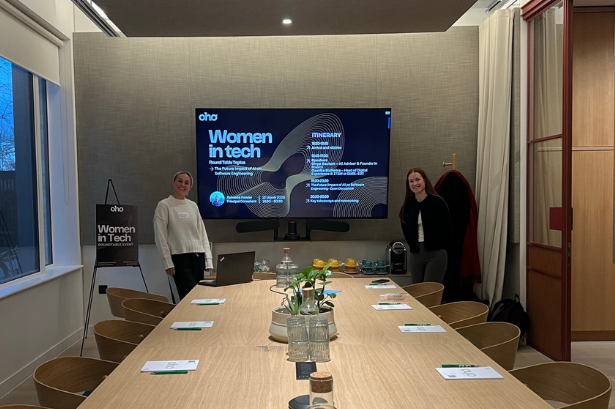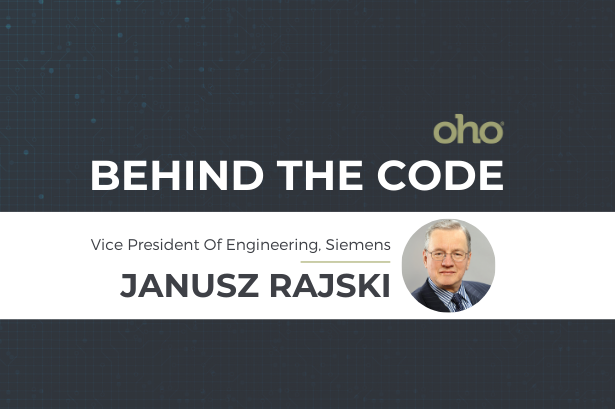What Does Being a "Disruptive Company” Mean in Today’s Market?
01 Jul, 20225 mins
Ten years ago, "disruptive" was a buzzword; a global phenomenon that held the top spot on every technology firm's to-do list. As 2019 came to a close:
CNBC reported that the 2010s had an “appetite for disruption”
Global X recognised that extensive tech evolution drove a “decade of change”
McKinsey & Company reflected that “we live in an era of disruption in which powerful global forces are changing how we live and work”
Why?
Put simply, for the last decade, a technology firm’s ability to disrupt the market was believed to directly correlate to their overall success. To secure a market share and earn the attention of prospective customers, they had to stand out.
The trend of “disruption”
Forbes, Harvard Business Review, and Investopedia were all adding fuel to the fire with their advice and persuading businesses that, to adopt a growth mindset, they needed a business model focused on disruption.
(Source: FOSTECH & Company).
Over time, "disruptive" became a label that was viewed as an imperative, but hard-to-come-by, competitive advantage.
Businesses that weren't taking risks and keeping up with the rapid pace of innovation were perceived to be unworthy of an investor's attention. So, motivated, by the dream of being disruptive, organisations pushed themselves (and their employees) to the limit.
The consequences of disruption 1.0
Technology firms soon faced a harsh reality.
Though they had initially acted with the purest intentions of delivering new solutions to the market, employees were forced into high-stress environments that valued them only for the work they produced.
In 2018, 57% of technology employees were suffering from burnout (Source: Bleeping Computer).
As more staff members struggled from poor mental health, standard business processes were thrown into disarray.
Example of disruption 1.0
In 2016, even Microsoft fell into the trap. They got so caught up in their desire to stay competitive through disruption that they failed to consider the needs of their customers. Blinded by the opportunity to make a profit, they launched Zune as an alternative product to the successful iPod… but offered very little in the way of differentiation (Source: Campaign). Soon, they’d lost millions.
“Disruption 2.0” in today’s technology markets
Today, competitive advantages are just as important to business success as they were back then. However, there’s a new priority on the scene: social awareness.
Businesses in today’s age are being disruptive through:
comprehensive mental health initiatives
DEI and sustainability practices
detailed market research and customer understanding
There’s now been a transition in what it means to be a disruptive company in 2022.
What is disruption 2.0?
Market leaders like Elon Musk and Tesla take their time with innovation, focusing on quality and not quantity.
On average, businesses are taking between 6 months and 2 years to develop a product and launch it to their end-users (Source: Zen Business). Post-delivery, they are still taking time to listen to feedback and fine-tune their service.
This is true across the whole technology arena.
Example of disruption 2.0
Across the world, about 1,000 technology companies have been valued at $1 billion by investors because of a combination of their game-changing innovations (Source: The News) and their extensive and detailed, long-term growth strategies.
The majority of these aptly-titled “unicorns” have evaluated the needs of the market and developed unique product solutions. All the while, they hold themselves to high ethical standards.
In the UK, examples of such organisations include FinTech firms like:
Checkout.com: Has a public DEI statement and publish clear social proof
Revolut: Follows a clear code of conduct that can be viewed on their website
Blockchain.com: Promotes industry transparency through a strong content strategy
“We believe that brilliant people, working together in an honest, high-achieving culture, are the key to delivering the amazing products and services our customers love. We know that our behaviour towards one another is critical to that success.” - Nik Storonsky, Revolut CEO
How to be disruptive in the technology industry
Therefore, to truly be a “disruptive company” in today’s environments, you have to remain conscious of how your decisions affect those around you. Firms should prioritise employee wellbeing and customer satisfaction.
Step 1. Update your HR processes
If you want your employees to be in the best mindset for being creative, you have to nurture an inclusive culture that celebrates diversity and “outside of the box” thinking. This may involve updating your HR processes to:
Give everyone equal access to support networks.
Invest in learning and development.
Build trust between team members.
Once you’ve managed to address the barriers that harm employee productivity, you’ll be better positioning yourself for disrupting the market.
Step 2. Act sustainably
In 2022, there’s a trend forming. 88% of consumers would choose to buy from a company with ethical sourcing structures in place over ones that don’t. (Source: Pro Curious).
So, by acting sustainably - and even going so far as to make a pledge - you can easily differentiate yourself from others in the market and lead the way to a greener world.
If you want to be more disruptive, take the initiative to:
Reduce wastage.
Commit to carbon-zero production.
Be more energy efficient.
This is the action that customers will take notice of.
Step 3. Conduct market research
Instead of blindly making presumptions about what the market wants, always take the time to conduct in-depth research.
Even if there’s an alternative product already available in the market that’s doing well, you need to understand why that is. Listen to feedback and look for a gap that you can serve. Don’t make the same mistake that Microsoft did.
Step 4. Grow your brand
There’s one thing that technology leaders all have in common: a strong brand.
Every product they launch comes with the claim that it is a “record-breaking innovation” (even when it isn’t). This is something a lot of firms in the sector can learn from.
Step 5. Invest in recruitment
The surefire way to ethically disrupt the market is to secure the best talent in the industry.
This way, you have the greatest minds working on your projects.
Investing in recruitment not only gives your business the tools it needs to adapt to market changes, but it can help you rise above your competitors and boost your growth.
Recruit disruptors through OHO
OHO is the meeting place where exceptional talent can connect with fascinating opportunities. We’re excited to be driving UK innovation. Where there’s a plan, we have the people.
We’re an established and respected consultancy that offers a range of specialist services to a broad spectrum of clients and candidates within the IT, Electronic Engineering, Finance and Consultancy sectors.



